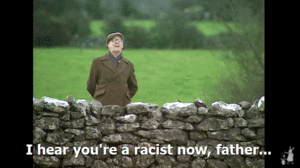- Jul 21, 2013
- 842
- Tinnitus Since
- 01/2013
- Cause of Tinnitus
- Acoustic trauma from headphones
Some news from the locals.
http://www.masseyeandear.org/resear...s/laboratories/lauer-tinnitus-research-center
There is also a Tinnitus Information Seminar happening at Mass. Eye and Ear, Meltzer Auditorium, 3rd Floor on November 16th (a Wednesday) from 7:00pm-9:00pm. If it's Mass Eye & Ear there should be good information.
http://www.masseyeandear.org/resear...s/laboratories/lauer-tinnitus-research-center
Lauer Tinnitus Research Center
In partnership with the Lauer family, Massachusetts Eye and Ear launched the Lauer Tinnitus Research Center in 2015 with the goal of advancing research to better understand and treat the debilitating condition of tinnitus.
Tinnitus or "ringing in the ears" is an often unbearable condition that affects more than 50 million Americans. It refers to the perception of sound when no external sound is present. Tinnitus has long been associated with hearing damage (e.g., overexposure to loud sound); but in recent years, scientists have hypothesized that loss of neuronal activity, from either auditory or non-auditory centers, can result in a re-adjustment in the brain circuits that mediate hearing. When nerve cells in the brain not receive adequate sensory input, they may compensate by amplifying all incoming signals. In some situations, this readjustment may lead to the perception of sounds when no sounds are present.
Led by M. Charles Liberman, Ph.D., Stéphane Maison, Ph.D., M.S., Jennifer Melcher, Ph.D., Daniel Polley, Ph.D., and Konstantina Stankovic, M.D., Ph.D., the Research Center brings together years of experience and state-of-the-art research techniques to bear on the problem of tinnitus.
The following strategies are underway to study tinnitus in the ear and the brain:
- Cochlear Nerve Repair and Tinnitus – Dr. Charlie Liberman, along with his colleague Dr. Sharon Kujawa, discovered in 2009 that even brief exposure to loud noise can result in permanent loss of auditory nerve fibers. They named this condition "hidden hearing loss," because it does not affect the audiogram or appear in routine histological preparations of the cochlea. However, the loss of communication between the inner ear and cochlear nerve may be a root cause for difficulties understanding speech in noisy environments and may be a key link in the chain of events that causes tinnitus. Dr. Liberman and his colleagues are working on therapeutic approaches to regrow these sensory neurons in mouse models in hopes of restoring hearing function and alleviating tinnitus.
- Imaging the Inner Ear in Tinnitus – Dr. Konstantina Stankovic is pioneering the development of a new technology to non-invasively image the tiny sensory cells of the human inner ear. Because the inner ear is encased in the hardest bone in the body, no current imaging techniques can "see" the cells and neurons of the ear. Her research aims to develop an endoscope to be used in the exam room to assess neuronal survival in the inner ear, a key to diagnosing the cause of tinnitus.
- Tinnitus in the Brain – Dr. Dan Polley is a leading expert in the physiology and plasticity of auditory processing areas of the brain. He is using cutting edge technologies for chronic imaging at a cellular scale to assess changes in the patterns of neural activity that represent the underlying signature of tinnitus in mouse models. His work is also investigating new strategies for direct brain stimulation that might reverse pathological patterns of activity and restore more normal sound perception.
- Testing Tinnitus Strategies in Humans – In 2000, Dr. Jennifer Melcher was the first to demonstrate tinnitus-related hyperactivity in the human brain using functional MRI imaging (fMRI). An expert in this technique, she will use fMRI to scientifically test the efficacy of potential strategies for tinnitus. Her first targets will be to investigate the efficacy of hearing aids and bite guards to alleviate tinnitus. Her research will provide evidence-based knowledge to physicians and patients and help to offer near-term treatment options for some patients.
- Dr. Dan Polley will be investigating new approaches to turn down the subjective intensity of tinnitus and restore more normal abilities to follow conversations in noisy environments. Using a customized auditory training software interface, Dr. Polley and his team have been successful in boosting speech recognition abilities in persons with hearing loss and now wish to apply this technology to tinnitus. Dr. Polley will be combining electrophysiological testing with his new approach for "brain training" to identify physiological changes in brain processing that accompany improvements in speech recognition and tinnitus severity.
The Lauer Tinnitus Research Center will undoubtedly drive the field forward in developing scientifically proven treatments to alleviate tinnitus.
- Dr. Liberman and Dr. Stéphane Maison will be following up on their 2016 study that identified a physiological signature for a "hidden hearing loss" that cannot be detected with conventional audiological tests but underlies difficulties tracking speech in noisy environments. Liberman and Maison will develop and refine their battery of tests to identify objective physiologic measures of aberrant neural processing that "hides" behind normal audiograms but may provide important clues about the mechanisms and manifestations of tinnitus.
There is also a Tinnitus Information Seminar happening at Mass. Eye and Ear, Meltzer Auditorium, 3rd Floor on November 16th (a Wednesday) from 7:00pm-9:00pm. If it's Mass Eye & Ear there should be good information.

 Member
Member

 ,
,


 for more research on hearing loss (and I hope tinnitus also).
for more research on hearing loss (and I hope tinnitus also). 